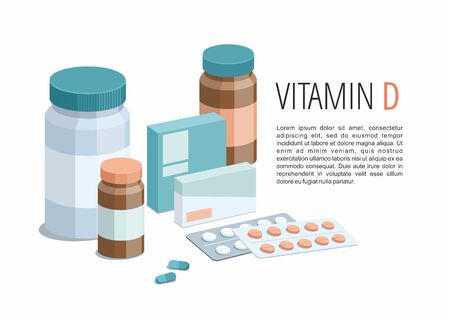1. Introduction: The Inside-Out vs. Outside-In Approach
When it comes to achieving healthy, glowing skin, there are two main approaches people often consider: taking supplements or applying topical skincare products. While both methods aim to improve skin health, they work in very different ways. Understanding how each approach functions can help you make more informed decisions about your skincare routine.
The Inside-Out Approach: Supplements
Supplements are designed to support your skin from within. These include vitamins, minerals, collagen powders, and antioxidant-rich capsules that claim to enhance skin hydration, elasticity, and overall appearance. The idea is that by nourishing the body internally, you’re giving your skin the building blocks it needs to regenerate and stay healthy.
The Outside-In Approach: Topical Skincare
Topical skincare includes creams, serums, lotions, and masks that you apply directly to your skin. These products deliver active ingredients—like retinol, hyaluronic acid, or vitamin C—right where they’re needed most. This method focuses on targeting specific concerns such as dryness, acne, or hyperpigmentation on the surface of the skin.
How They Differ in Action
| Aspect | Supplements (Inside-Out) | Topical Skincare (Outside-In) |
|---|---|---|
| Method of Application | Oral ingestion (pills, powders) | Applied directly on the skin |
| Main Focus | Nourish skin from within the body | Treat visible surface-level issues |
| Time to See Results | Weeks to months | Days to weeks (depending on product) |
| Common Ingredients | Collagen, biotin, zinc, vitamins A/C/E | Retinol, niacinamide, peptides, acids |
| Systemic Effects? | Affects overall body systems including skin | Localized effect on applied area only |
The Bottom Line for Now
The choice between supplements and topical skincare isn’t always clear-cut. Both have their place in a well-rounded routine. Supplements target long-term internal support while topical products offer quicker external results. In upcoming sections, we’ll dive deeper into how effective each method really is and whether one has a greater impact than the other.
2. Supplements: Nourishing Skin from Within
When it comes to skincare, most of us focus on creams, serums, and masks. But what we put inside our bodies can be just as important—if not more so—than what we apply on the surface. Supplements like vitamins, antioxidants, and collagen work from the inside out to support healthy skin at a deeper, cellular level.
How Do Supplements Impact Your Skin?
Unlike topical skincare that works on the outermost layer of your skin, supplements nourish your body internally. They travel through your bloodstream to reach the dermis—the skin’s middle layer—where they can improve hydration, firmness, and resilience. This makes them especially effective for targeting long-term concerns like aging and elasticity.
Key Nutrients That Support Skin Health
| Supplement | Main Benefit | How It Helps Your Skin |
|---|---|---|
| Vitamin C | Boosts Collagen Production | Helps maintain firmness and reduces fine lines |
| Vitamin E | Antioxidant Protection | Shields skin from free radical damage caused by UV rays and pollution |
| Collagen Peptides | Improves Elasticity & Hydration | Supports the skin’s structure and helps retain moisture |
| Zinc | Reduces Inflammation | Aids in healing acne-prone or irritated skin |
| Omega-3 Fatty Acids | Hydrates & Calms Skin | Strengthens the skin barrier and reduces dryness or redness |
The Cellular-Level Impact
Your skin cells are constantly renewing themselves, and nutrients play a major role in this process. For example, antioxidants like vitamin C help neutralize oxidative stress that leads to premature aging. Collagen supplements can stimulate fibroblasts—cells responsible for producing collagen—to keep your skin looking firm and youthful.
Real-Life Benefits You Can See Over Time:
- Smoother Texture: As collagen levels increase, fine lines may become less noticeable.
- Brighter Complexion: Antioxidants help reduce dullness caused by environmental stressors.
- More Hydrated Skin: Omega-3s and hyaluronic acid supplements can help lock in moisture from within.
- Improved Elasticity: With consistent intake, you may notice firmer, bouncier skin.
If youre already using quality skincare products but still dealing with dryness or signs of aging, adding targeted supplements might fill in the missing pieces. Just remember—consistency is key, and results often take several weeks to become noticeable.

3. Topical Skincare: Targeting Skin Concerns Directly
While supplements work from the inside out, topical skincare goes straight to the source—your skin’s surface. Serums, creams, and lotions are specially formulated to deliver active ingredients directly to the areas where theyre needed most. Whether youre dealing with dryness, fine lines, acne, or uneven skin tone, theres likely a product designed to help manage it.
The Power of Active Ingredients
Not all skincare products are created equal. What makes a real difference in your routine are the active ingredients. These are the components that actually do the work—whether its smoothing wrinkles, boosting hydration, or improving skin texture. Here are some of the most effective ones:
| Active Ingredient | Main Benefits | Best For |
|---|---|---|
| Retinol (Vitamin A) | Boosts cell turnover, reduces wrinkles and fine lines | Aging skin, acne-prone skin |
| Hyaluronic Acid | Deep hydration and plumping effect | Dry or dehydrated skin |
| Peptides | Supports collagen production, improves firmness | Mature or sagging skin |
Serums vs. Creams: Whats the Difference?
You’ve probably seen both serums and creams on store shelves—but what’s the difference? It mostly comes down to texture and ingredient concentration.
| Product Type | Texture | Main Function |
|---|---|---|
| Serum | Lightweight, fast-absorbing | Delivers high concentration of actives deep into the skin |
| Cream | Thicker and richer | Moisturizes and creates a barrier to lock in hydration |
Choosing the Right Product for Your Skin Goals
Your choice of topical skincare should reflect your specific skin concerns. For example, if youre focused on anti-aging, a retinol serum followed by a peptide-rich cream may be ideal. If hydration is your main goal, look for products with hyaluronic acid and ceramides.
Tips for Getting the Most Out of Topicals:
- Layer smart: Apply lighter products like serums before heavier creams.
- Be consistent: Regular use is key to seeing results.
- Simplify when needed: Too many products can irritate your skin—start simple and build as needed.
- Use sunscreen daily: Some active ingredients like retinol can make your skin more sensitive to sun exposure.
Topical skincare offers a direct and customizable way to improve your skin’s appearance. With so many options available, finding what works best for you might take some experimenting—but knowing which ingredients target your specific concerns is a great place to start.
4. Which Is More Effective? Science and Expert Opinions
When it comes to skincare, many people wonder whether taking supplements or applying topical products will give them the best results. To answer this, we looked at scientific research and asked dermatologists for their expert opinions.
What Does the Science Say?
Scientific studies show that both supplements and topical skincare have their own unique benefits. However, they work in different ways:
| Method | How It Works | Common Ingredients | Time to See Results |
|---|---|---|---|
| Supplements | Nourish skin from within by supporting overall health and cellular repair | Collagen, Vitamin C, Omega-3, Biotin | 4–12 weeks |
| Topical Skincare | Targets specific skin concerns directly on the surface of the skin | Retinol, Hyaluronic Acid, Niacinamide, Peptides | 2–8 weeks |
Dermatologists’ Insights
According to U.S.-based dermatologists, topical treatments are often more effective for immediate or localized concerns like acne, dryness, or pigmentation. Since they act directly on the skin’s surface, you can see faster visible changes.
On the other hand, supplements may not provide instant results but are great for long-term skin health. Dermatologists often recommend using both approaches together—especially if you’re looking to improve skin texture, elasticity, and hydration over time.
Expert Tip:
“Think of supplements as your skin’s support system and topicals as your first responders.”
The Bottom Line from Experts
If youre dealing with a specific issue like breakouts or sun damage, a targeted serum or cream might be your best bet. But if youre looking to boost your skins health from the inside out—especially as part of an anti-aging routine—supplements can be a powerful addition. Many dermatologists agree: for optimal results, combining both is key.
5. Balancing Both: A Holistic Approach to Skincare
When it comes to achieving glowing, healthy skin, the debate between supplements and topical skincare doesn’t have to be either-or. In fact, combining both can offer the most comprehensive results. Think of it like taking care of your body from the inside out and the outside in—together, they create a full-circle approach that supports skin health at every level.
Why Integration Matters
Your skin is your body’s largest organ, and it reflects what’s happening inside your body just as much as what its exposed to on the surface. Supplements deliver nutrients internally to support skin cell function, hydration, and repair from within. On the other hand, topical products protect and nourish your skin directly where environmental stressors strike—like pollution, UV rays, and harsh weather.
Combining Supplements & Topicals: What Each Brings to the Table
| Supplements (Internal) | Topical Skincare (External) |
|---|---|
| Supports collagen production from within | Delivers immediate hydration and barrier protection |
| Provides antioxidants to fight oxidative stress | Targets specific concerns like acne or pigmentation |
| Nourishes skin cells through essential vitamins and minerals | Improves texture and appearance on the surface |
| Helps regulate hormonal imbalances that affect skin | Offers localized treatment for sensitive or problem areas |
The Power of Synergy
Using both strategies allows you to cover all bases. For example, taking a daily collagen supplement can strengthen your skins structure over time, while applying a vitamin C serum can brighten your complexion instantly. This dual action creates more sustainable, long-term results than relying on one method alone.
Real-Life Example:
If youre dealing with dry skin, omega-3 supplements can help improve hydration from within by supporting your skin’s lipid barrier. Pair that with a hyaluronic acid moisturizer that locks in moisture on the surface, and you’ve got a powerful combo that tackles dryness on both fronts.
How to Start Building Your Routine
You don’t need a medicine cabinet full of pills or a 12-step skincare routine. Start simple:
- Choose 1–2 high-quality supplements: Like collagen peptides or a multivitamin formulated for skin health.
- Select key topical products: Such as a gentle cleanser, moisturizer, SPF during the day, and active serums at night.
- Be consistent: Results take time—usually 6–8 weeks of regular use before noticeable improvements appear.
The goal isn’t perfection—it’s creating balance. By combining internal nourishment with external care, you’re giving your skin everything it needs to stay healthy, radiant, and resilient for the long haul.

